Spider mites are common pests that often leave the gardeners asking, “does dish soap kill spider mites?” Insecticidal soaps are available for pest control but they’re expensive and will involve a trip to the garden center. Dish soap could, instead, be a simple and inexpensive hack, but will it work?
Dish soap kills spider mites & other soft-bodied insects by disrupting cell membranes & removing protective wax, causing death by dehydration. Mild dish soap combined with water can be mixed at a concentration of 2 – 3% as an insecticide; stronger concentrations of soap may damage plants.
It’s important to learn how to create this homemade insecticidal spray and how to use it on the plants for maximum efficacy. While dish soap kills spider mites, it can also risk the plant’s health. It’s just as important to consider the type of dish soap to use to make sure it doesn’t pose any risk to your plants.
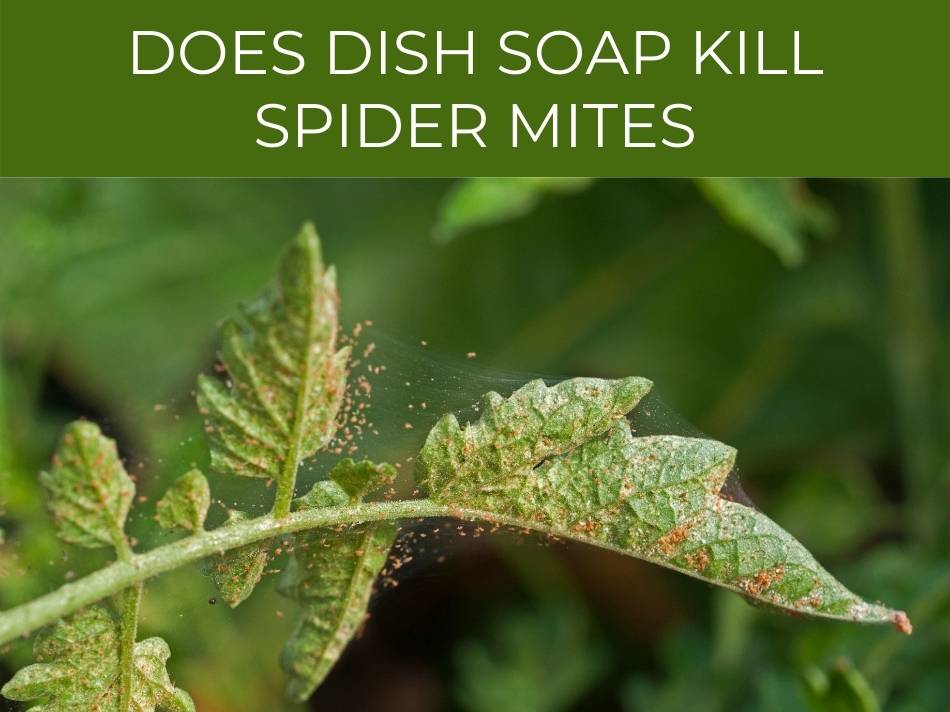
Does Dish Soap Kill Spider Mites
Spider mites are tiny arachnids that typically colonize on the underside of leaves, spinning white webbing around the foliage, sucking cellular material out of the plant and weakening it.
If left untreated, severe defoliation occurs, which may ultimately kill the plant.
Insecticidal soaps are available to fight spider mites without posing any risks to the beneficial insects, unlike chemical insecticides.
Though insecticidal soaps are specialized products for pest control, they can be expensive, and not always available at home.
Dish soap is an easier alternative that has been used by gardeners successfully against pests for ages.
Dish soap can kill soft bodied insects, including spider mites.
Dish soap works by disrupting the cell membrane of the insects and removing the protective waxes on their bodies, resulting in excessive loss of water and, ultimately, the death of the insect.
For dish soap to kill spider mites, it must cover the pests entirely.
Since dish soap functions as contact insecticide, there will not be any residual effect.
For best results, dish soap solution will need to be applied thoroughly to the plant to cover and kill most of the spider mites.
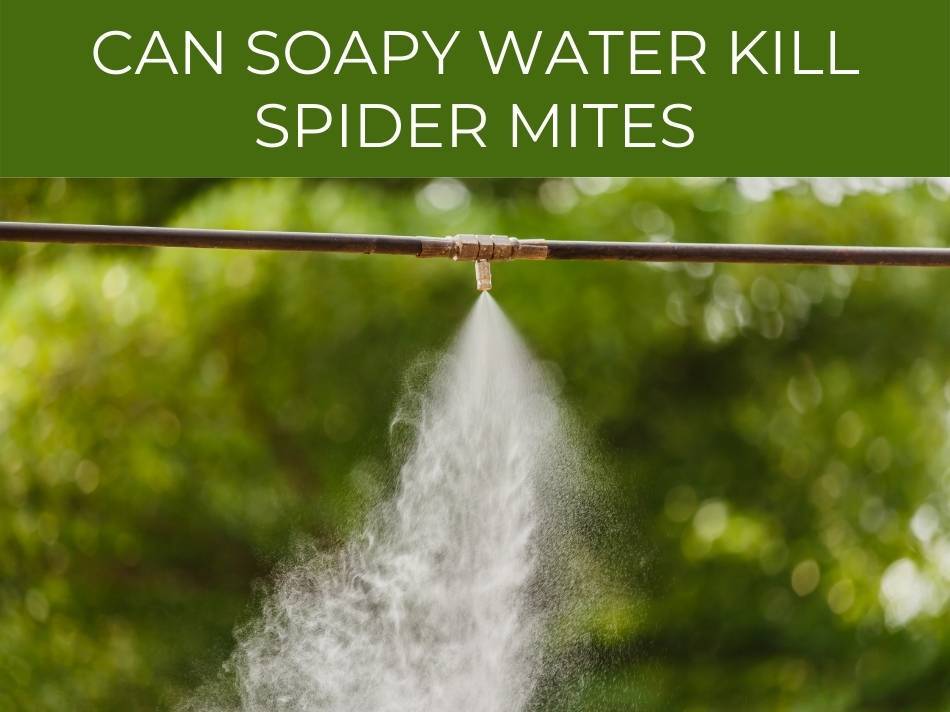
Can Soapy Water Kill Spider Mites
Spider mites are a common problem with both indoor and outdoor plants.
Because of their small size, they can cause significant damage to the plant once they infest them, before you even notice their existence.
Gardeners have developed some simple hacks to get rid of them, soapy water being one of them.
Yes, soapy water can kill spider mites.
Soaps and detergents mixed with water to create a dilute insecticidal spray is very effective against spider mites and other soft bodied insects.
A variety of hand soaps and liquid dishwashing soaps can be used to create soapy water to spray on mites.
However, not all kinds of soaps are safe for use on plants.
Try to avoid clothes washing soaps and dry dish soaps since they can often be too harsh on the plants and may damage the foliage.
A good approach is to spot test the solution on a portion of the plant and wait for 2 to 3 days to make sure there’s no side effect of its use before applying it to the entire plant.
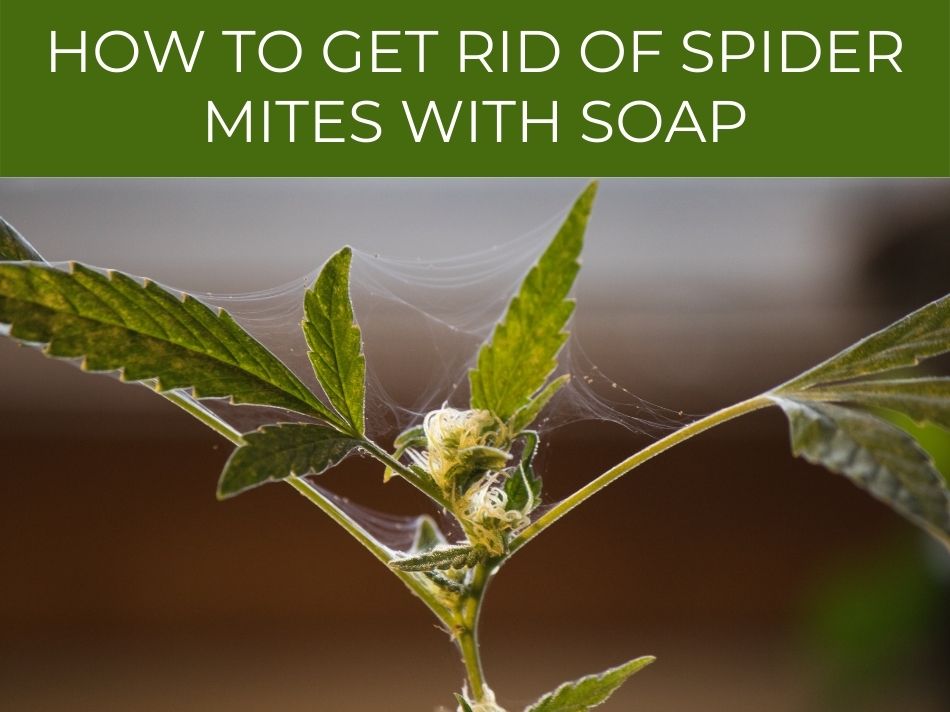
How To Get Rid Of Spider Mites With Soap
A few spider mites won’t cause much damage to the plant.
However, they have a very short life cycle and can multiply very quickly to take over the entire plant if you don’t get rid of them.
If you don’t want to purchase anything from the store, soap is something that’s available in every household.
Dilute any kind of liquid soap, that does not include a degreaser, in water to prepare a homemade insecticide.
The solution should typically be at a concentration of 2 to 3%, because anything stronger may damage the plant.
Spray it on the plants thoroughly and repeat the application every couple of days until the infested plant is completely rid of spider mites.
Certain plants, including hawthorn, cherries, sweet pea and plum, are more sensitive to soaps than others.
Risks of injury by soaps on these plants can be reduced by diluting the solution more than 2 to 3% before spraying it on the foliage.
Furthermore, it’s advised to test the spray on a small portion of the plant to observe any potential problems for a day or two before using it on the entire plant.
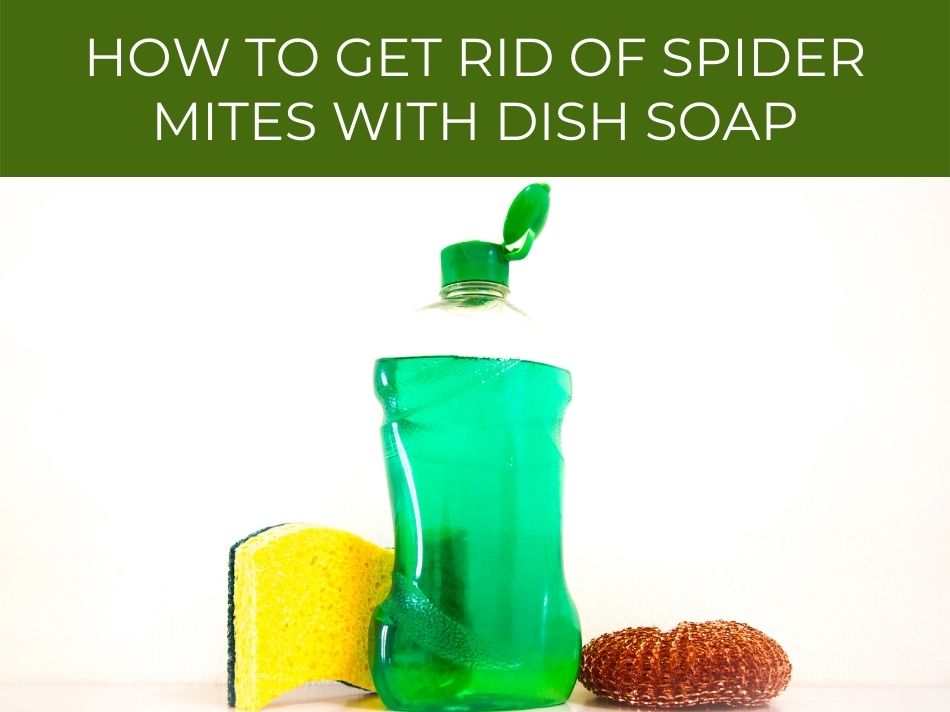
How To Get Rid Of Spider Mites With Dish Soap
Once you detect spider mites on the plants, start a suitable treatment promptly before the pests take over the plant and spread to other plants.
Speckled or mottled leaves, distorted leaves and flowers and fine, white webbing around the flowers are some indications that spider mites have infested your plant.
If the infested plant is growing in a container, it’s important to move it away from other plants right away to prevent the problem from spreading.
To treat the infested plant, prepare a solution using 3 tablespoons of dish soap and 1 gallon of water.
Use a sprayer bottle to spray the mixture thoroughly on the leaves, ensuring complete coverage on both sides.
Wash off the dish soap solution from the plants using a garden hose after a few hours to prevent it from damaging the foliage.
Repeat the application every 5 or 6 days until you’re sure that the spider mites are completely eliminated.
Dish soap is also an effective treatment against aphids.
Check out our complete article on how to get rid of aphids from your garden.
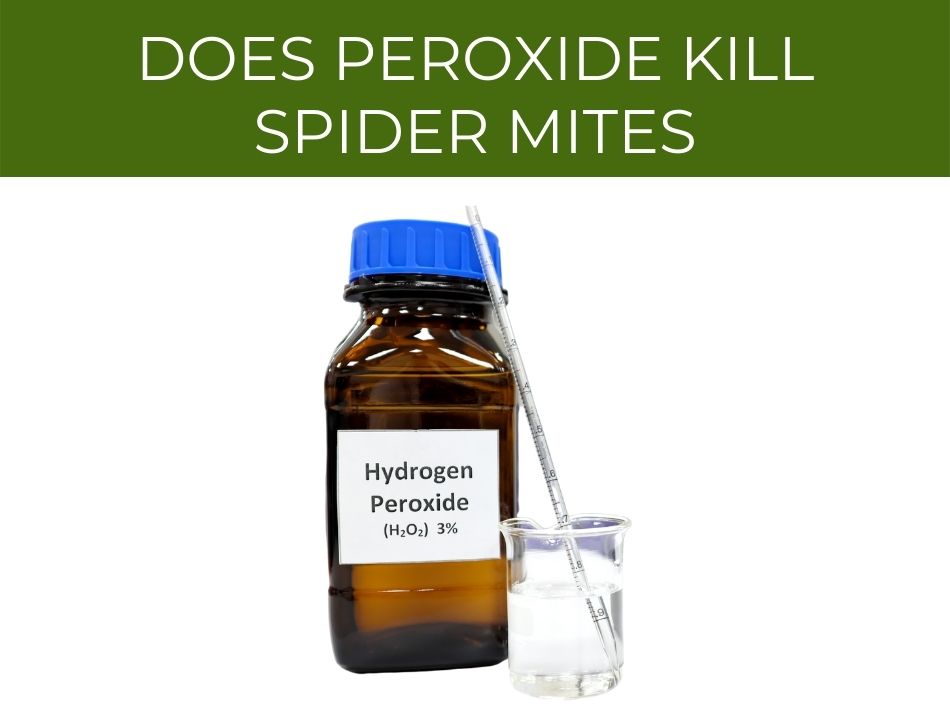
Does Peroxide Kill Spider Mites
Dish soap is not the only home remedy that can remove spider mites from your precious plants.
There are plenty of other effective tricks too, hydrogen peroxide being a popular one.
Food-grade, diluted hydrogen peroxide can function as an environmentally-friendly, non-toxic spider mite killer.
Dilute 1 cup of 3% hydrogen peroxide in 1 cup of water to create a hydrogen peroxide solution for treating spider mites.
Spray the solution on the plants, soaking both sides of the foliage thoroughly so that the solution coats all the pests entirely.
You’ll need to repeat the treatment weekly for a few weeks until the spider mites are completely gone from the infested plant.
Other than eliminating spider mites, hydrogen peroxide is also a popular technique to cater fungal and bacterial problems in plants.
Check out our complete article on whether peroxide kills spider mites.
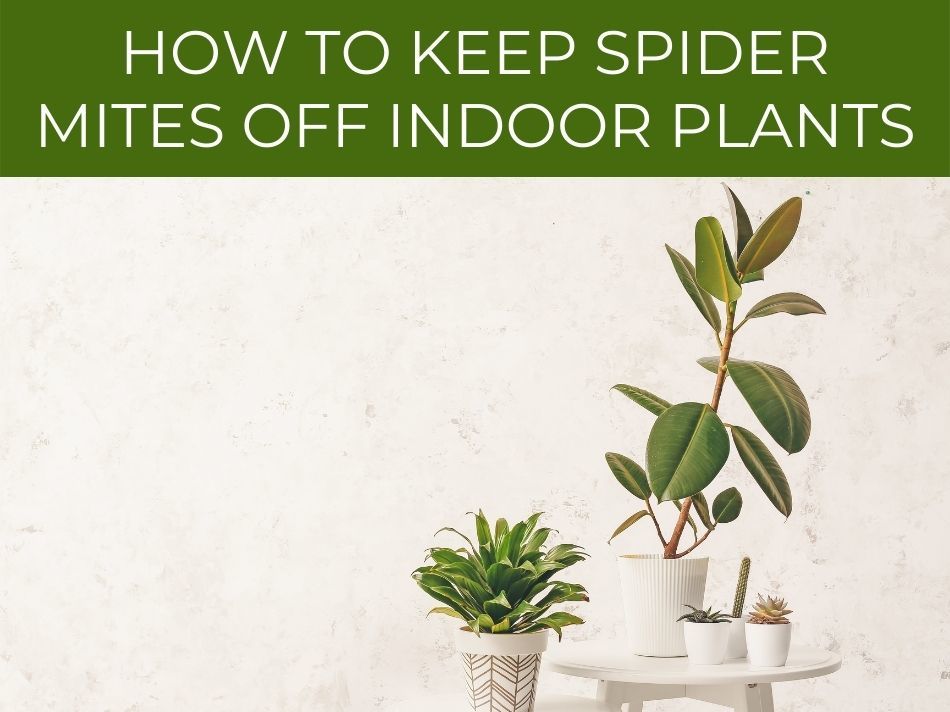
How To Keep Spider Mites Off Indoor Plants
Houseplants are especially susceptible to attacks by spider mites.
To keep these pests away from your indoor plants, it’s important to understand what conditions these pests thrive in and then offer the opposite.
Spider mites appreciate dry weather, low humidity and temperatures exceeding 85°F.
If your houseplant rests on a sunny window, exposed to direct, hot sun rays for a greater part of the day, the chances of an infestation are high.
Place the plant at a shadier spot, protected from afternoon sun and keep it well-watered to keep the plant and the soil cool.
Misting the plants regularly is also advised to create a humid environment to prevent the spider mites from being attracted.
Besides all the preventive measures, keep an eye out for any infestations.
As soon as you notice the symptoms, treat the plant with a dilute dish soap solution to get rid of the insects before they damage the plants.
Check out our complete article on how to get rid of spider mites on indoor plants.
If you have indoor palm trees, see our full guide on how to get rid of spider mites on palm trees.
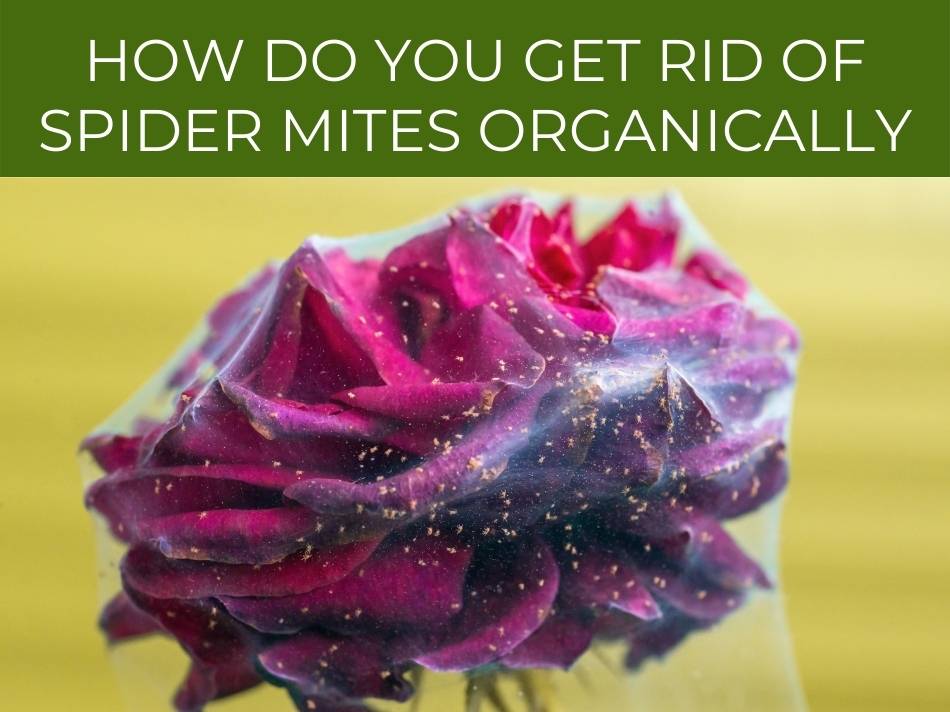
How Do You Get Rid Of Spider Mites Organically
There are plenty of chemical pesticides available in stores, specifically designed for killing spider mites.
However, the drawback to their use is that they will kill beneficial insects too, many of which are natural predators to mites themselves.
Instead, organic pest control techniques are safer to beneficial insects, pets and animals, and, yet, very effective on spider mites.
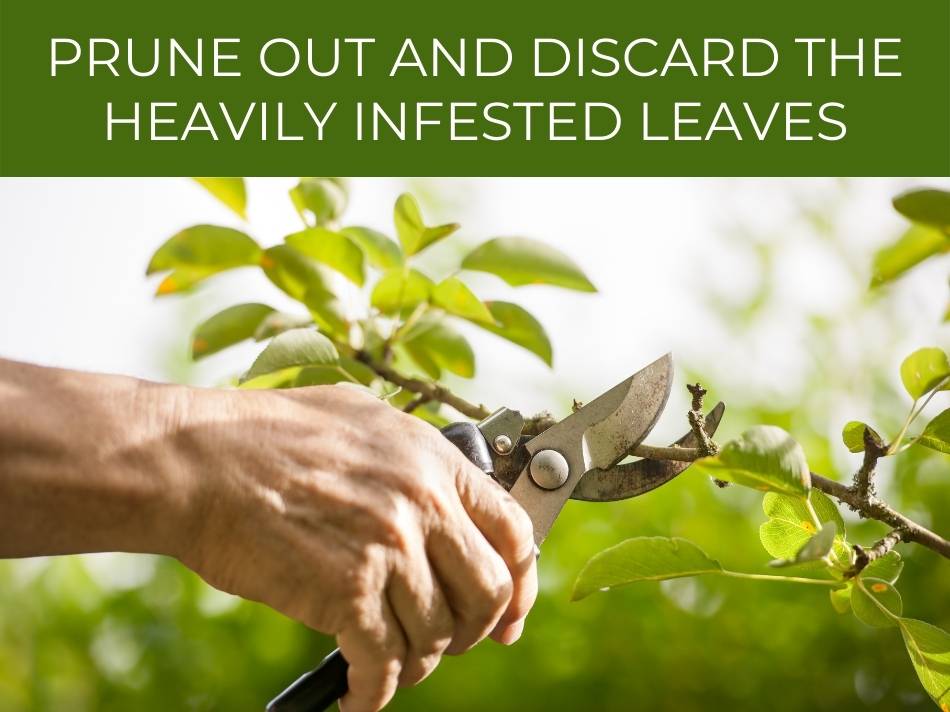
- Prune out and discard the heavily infested leaves.
- Hose off the insects and their eggs with high pressure water and repeat the technique as needed until the plant is completely rid of spider mites.
- Spray the plants with a solution made by mixing 1 teaspoon of cayenne pepper in a cup of water.
Keep your plants well watered, fed and mulched to keep them strong enough to resist pest attacks.
If you want to keep your garden organic, avoid using pesticides so that the beneficial bugs can also help you put up stronger defenses against spider mites.
A wide variety of plant extracts, such as garlic extract, clove oil, mint oil, cinnamon oil and eucalyptus oil are also effective organic products you can use to kill spider mites.
Check out the complete article on how to get rid of spider mites naturally.
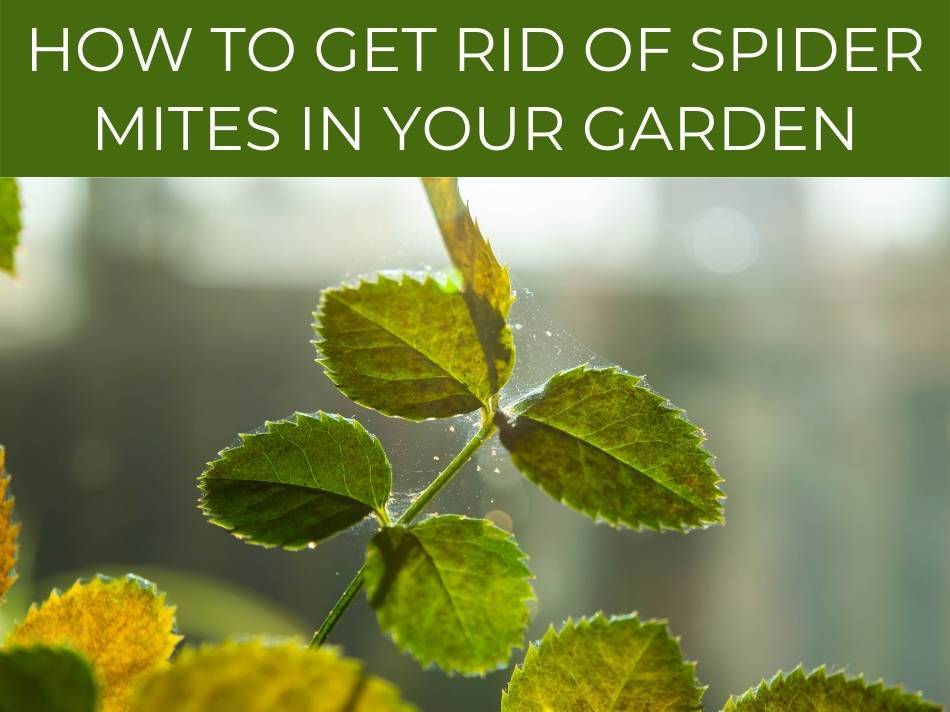
How To Get Rid Of Spider Mites In Your Garden
Spider mites are a major enemy that greenhouse and indoor gardeners have to face all year round.
In warm, dry summers, this pest will also attack outdoor gardens, feeding on the chlorophyll in plants’ leaves, leaving them stunted, weak and fighting for survival.
Getting rid of spider mites involves limiting the use of pesticides in the garden so that the natural predators can thrive and keep the population of spider mites in check.
6-spotted thrips, ladybugs, pirate bug species and parasitic mites are some of the beneficial bugs that kill spider mites.
You can purchase these bugs from the garden center and introduce them in your garden to drive away the spider mites.
These beneficial bugs only attack the spider mites and other pests, while leaving your plants unharmed.
Applying diatomaceous earth also helps get rid of spider mites in your garden by killing them through excessive dehydration.

Conclusion
That’s how dish soap and other hacks can drive off spider mites from your plants.
Choose a technique you can conveniently use and use it against your garden enemies.
Acting promptly and persistently can help you get rid of the mites and revive your plants of the damage.


